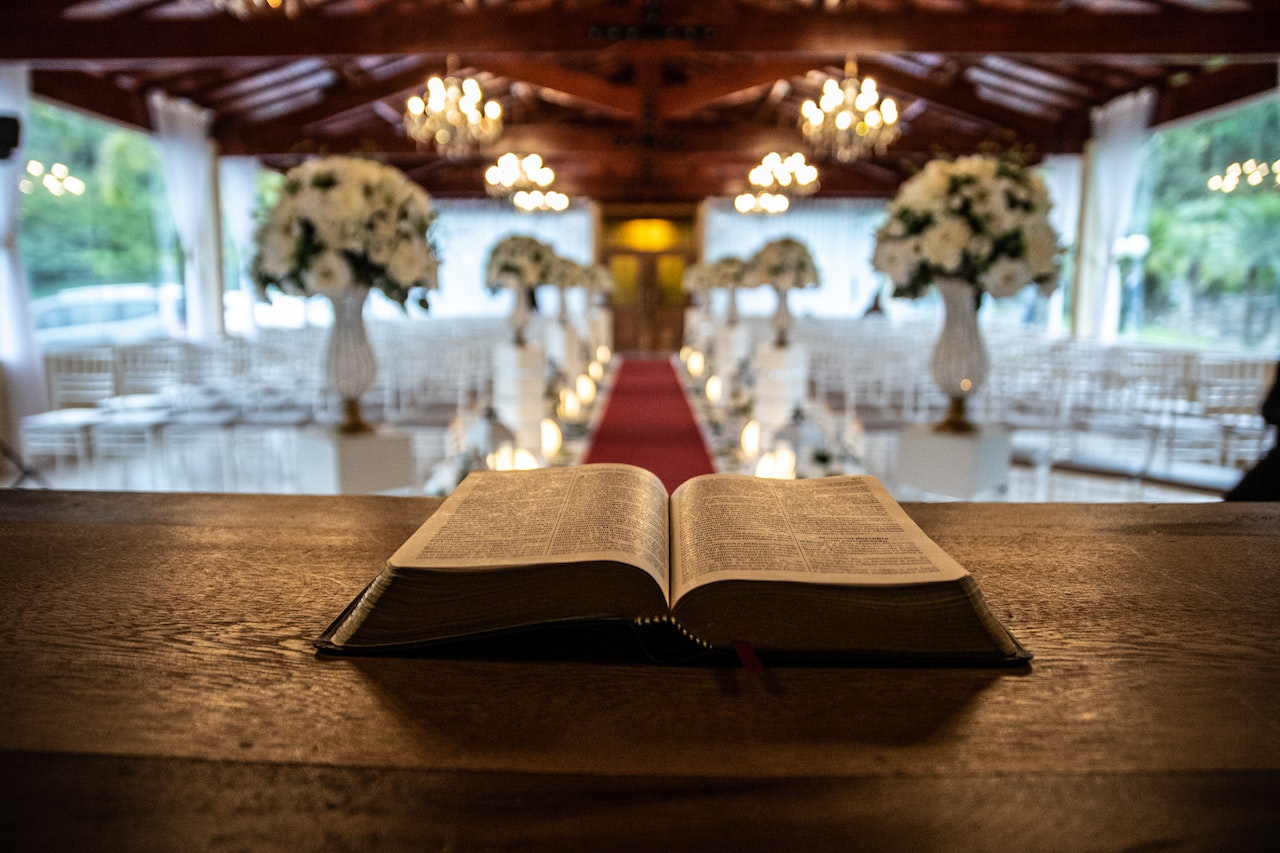“Can Christians Say Salam Alaikum” is a question that arises from the cultural and religious interactions between Christians and Muslims. The phrase “Salam Alaikum” is a common greeting in Islam, meaning “peace be upon you.” Some Christians may choose to use this greeting as a sign of respect and goodwill towards their Muslim neighbors and friends. However, others may feel uncomfortable using a phrase that is associated with a different faith tradition. Ultimately, whether or not Christians can say “Salam Alaikum” is a personal decision that may vary depending on individual beliefs and cultural contexts.
Table of Contents
Understanding the Meaning of Salam Alaikum in Islam
Have you ever wondered if it’s okay for Christians to say “Salam Alaikum” to their Muslim friends? This common Arabic greeting is often used by Muslims to wish peace upon others. But what does it really mean, and is it appropriate for Christians to use it as well?
“Salam Alaikum” is a traditional Arabic greeting that translates to “Peace be upon you” in English. It is a common way for Muslims to greet each other and is often used as a sign of respect and goodwill. The response to this greeting is “Wa Alaikum Salam,” which means “And peace be upon you too.”
While this greeting is deeply rooted in Islamic tradition, there is no reason why Christians cannot use it as well. In fact, many Christians around the world have adopted this greeting as a way to show solidarity and respect for their Muslim neighbors. By using “Salam Alaikum,” Christians can help promote peace and understanding between different faiths.
It’s important to remember that the message behind “Salam Alaikum” is one of peace and goodwill. By using this greeting, Christians can show that they value these principles and are open to building positive relationships with people of other faiths. In a world that is often divided by religious differences, a simple greeting like “Salam Alaikum” can go a long way in fostering unity and harmony.
Some Christians may be hesitant to use “Salam Alaikum” because they are unsure of its meaning or worried about offending their Muslim friends. However, it’s important to remember that the intention behind the greeting is what matters most. By sincerely wishing peace upon someone, regardless of their faith, Christians can demonstrate their commitment to love and respect for all people.
In the Bible, Jesus taught his followers to love their neighbors as themselves and to treat others with kindness and compassion. By using “Salam Alaikum,” Christians can embody these teachings and show that they are committed to living out their faith in a way that promotes peace and understanding.
It’s also worth noting that many Muslims appreciate when non-Muslims make an effort to learn about their culture and traditions. By using “Salam Alaikum,” Christians can show that they are willing to step outside of their comfort zone and engage with people of different backgrounds. This simple gesture can help break down barriers and build bridges between different communities.
In conclusion, Christians can absolutely say “Salam Alaikum” to their Muslim friends. By using this traditional Arabic greeting, Christians can show that they value peace, respect, and understanding. In a world that is often divided by religious differences, a simple greeting like “Salam Alaikum” can be a powerful way to promote unity and harmony. So go ahead, don’t be afraid to say “Salam Alaikum” – you might just make someone’s day a little brighter.
Exploring the Biblical Perspective on Greeting Muslims with Salam Alaikum
Have you ever wondered if it’s appropriate for Christians to greet Muslims with “Salam Alaikum”? This common Arabic greeting translates to “Peace be upon you” and is used by Muslims around the world as a way to show respect and goodwill towards others. But what does the Bible have to say about Christians using this greeting? Let’s explore the biblical perspective on this topic.
In the Bible, we are encouraged to show love and kindness to all people, regardless of their beliefs or background. Jesus himself taught us to love our neighbors as ourselves and to treat others with respect and compassion. When we greet someone with “Salam Alaikum,” we are extending a gesture of peace and goodwill, which aligns with the teachings of Jesus.
Some Christians may be hesitant to use this greeting out of fear of compromising their own beliefs. However, it’s important to remember that showing kindness and respect to others does not mean that we are endorsing or agreeing with their beliefs. In fact, by extending a friendly greeting to someone of a different faith, we are demonstrating the love of Christ in a tangible way.
It’s also worth noting that the Bible does not specifically address the use of “Salam Alaikum” as a greeting. Instead, it emphasizes the importance of showing love and respect to all people, regardless of their background or beliefs. As long as our intentions are pure and our hearts are filled with love, there is no harm in using this common Arabic greeting as a way to connect with our Muslim neighbors.
In today’s diverse and multicultural society, it’s more important than ever for Christians to build bridges with people of other faiths. By using “Salam Alaikum” as a greeting, we are opening the door to meaningful conversations and relationships with our Muslim brothers and sisters. This simple gesture can go a long way in breaking down barriers and fostering understanding between different religious communities.
Ultimately, the decision to use “Salam Alaikum” as a greeting is a personal one that should be guided by love and respect for others. As Christians, we are called to be ambassadors of Christ’s love in the world, and extending a gesture of peace and goodwill is one way to fulfill that calling. So the next time you have the opportunity to greet a Muslim friend or acquaintance, don’t hesitate to say “Salam Alaikum” and show them the love of Christ in action.
In conclusion, Christians can certainly say “Salam Alaikum” as a way to greet their Muslim neighbors with peace and goodwill. By doing so, we are following the example of Jesus and demonstrating our commitment to love and respect all people, regardless of their beliefs. Let’s continue to build bridges with our Muslim brothers and sisters and show them the love of Christ through our words and actions. Peace be upon you!
Addressing Misconceptions and Stereotypes Surrounding Christians Saying Salam Alaikum

Have you ever wondered if it’s okay for Christians to say “Salam Alaikum”? This common Arabic greeting, which translates to “Peace be upon you,” is often used by Muslims as a way to greet one another. However, there seems to be some confusion and misconceptions surrounding whether Christians can also use this greeting.
First and foremost, it’s important to understand that “Salam Alaikum” is simply a way to wish peace upon someone. It is a universal message of goodwill and harmony that transcends religious boundaries. In fact, many Christians around the world use this greeting as a sign of respect and friendship towards their Muslim neighbors.
It’s crucial to remember that Christianity and Islam share many common values, including the importance of peace, love, and compassion. Both religions emphasize the need to treat others with kindness and respect, regardless of their faith or background. By saying “Salam Alaikum,” Christians are not compromising their beliefs but rather embracing the shared values that unite us all as human beings.
Furthermore, using the greeting “Salam Alaikum” can be a powerful way to build bridges and foster understanding between different religious communities. In a world that is often divided by religious and cultural differences, a simple gesture of peace and goodwill can go a long way in promoting harmony and unity.
Some Christians may feel hesitant to use the greeting “Salam Alaikum” out of fear of offending their Muslim friends or colleagues. However, it’s important to remember that most Muslims would appreciate the gesture and see it as a sign of respect and inclusivity. By showing an interest in their culture and traditions, Christians can demonstrate their commitment to building positive relationships with people of all faiths.
In the end, the message behind “Salam Alaikum” is one that transcends religious labels and speaks to our shared humanity. It is a reminder that we are all interconnected and that our differences should not divide us but rather unite us in our quest for peace and understanding.
So, can Christians say “Salam Alaikum”? The answer is a resounding yes. By using this simple greeting, Christians can show their support for peace and harmony, build bridges with their Muslim neighbors, and demonstrate their commitment to promoting unity and understanding in a diverse world.
In conclusion, let’s remember that words have the power to bring people together and break down barriers. By saying “Salam Alaikum,” Christians can send a powerful message of peace and goodwill that transcends religious boundaries and fosters a sense of unity and solidarity among all people. So go ahead, don’t be afraid to say “Salam Alaikum” – it’s a small gesture that can make a big difference in promoting harmony and understanding in our world.
Sharing Personal Experiences of Christians Using Salam Alaikum in Interfaith Dialogue
Have you ever wondered if it’s okay for Christians to say “Salam Alaikum” in interfaith dialogue? As someone who has engaged in many conversations with Muslims, I can tell you that using this traditional Arabic greeting can be a powerful way to show respect and build bridges between different faith communities.
When I first started participating in interfaith events, I was unsure about whether it was appropriate for me, as a Christian, to use the phrase “Salam Alaikum.” I didn’t want to offend anyone or come across as insincere. However, as I got to know more Muslims and learned about the significance of this greeting, I realized that it was a simple yet meaningful way to show solidarity and goodwill.
One of the things that struck me about saying “Salam Alaikum” is how it immediately creates a sense of connection and mutual understanding. When I greet someone with these words, I am acknowledging their faith and culture, and showing that I am open to learning from them. It sets a positive tone for our conversation and helps to break down barriers that might otherwise exist between us.
I remember one particular conversation I had with a Muslim friend where we were discussing our beliefs and practices. When I greeted her with “Salam Alaikum,” she smiled warmly and thanked me for showing respect for her faith. It was a small gesture, but it made a big impact on our relationship and helped to foster a sense of trust and mutual respect.
Using “Salam Alaikum” in interfaith dialogue is not just about words; it’s about the intention behind them. When I say these words, I am expressing a genuine desire for peace and harmony between our communities. I am signaling that I am willing to listen, learn, and engage in meaningful conversations that can help us better understand each other.
Of course, there may be some Christians who feel uncomfortable using this greeting, and that’s okay. It’s important to be authentic in our interactions and to find ways to show respect that feel genuine to us. However, for those who are open to it, saying “Salam Alaikum” can be a powerful tool for building relationships and promoting understanding between different faith traditions.
In my experience, using “Salam Alaikum” has opened doors to deeper conversations and friendships with Muslims. It has helped me to see the humanity and beauty in their faith and culture, and to appreciate the common values that we share as people of faith. It has also challenged me to reflect on my own beliefs and to consider how I can be a better ally and advocate for interfaith cooperation.
So, can Christians say “Salam Alaikum”? Absolutely. By using this simple greeting, we can show respect, build bridges, and promote peace in a world that is often divided by fear and misunderstanding. Let’s embrace the opportunity to connect with our Muslim brothers and sisters in faith, and to work together towards a more harmonious and inclusive society. Peace be upon you.
Reflecting on the Importance of Building Bridges and Fostering Understanding Between Christians and Muslims
As Christians, it is important for us to reflect on the importance of building bridges and fostering understanding with people of other faiths, including Muslims. One common greeting that Muslims use is “Salam Alaikum,” which translates to “Peace be upon you.” This greeting is a beautiful expression of goodwill and peace, and it is often used as a way to greet others in the Muslim community.
Some Christians may wonder if it is appropriate for them to say “Salam Alaikum” to their Muslim friends and neighbors. The answer to this question is not a simple yes or no, but rather a matter of personal preference and cultural sensitivity. In general, it is always a good idea to show respect and kindness to others, regardless of their faith or background. Saying “Salam Alaikum” to a Muslim person can be a way to show that you respect their culture and beliefs, and that you are open to building a positive relationship with them.
When interacting with people of different faiths, it is important to approach them with an open heart and mind. Building bridges between Christians and Muslims starts with simple acts of kindness and understanding. By showing respect for their beliefs and traditions, we can create a sense of unity and mutual respect that transcends religious differences.
It is also important to remember that we are all children of God, and that we are called to love one another as God loves us. By reaching out to our Muslim brothers and sisters with love and compassion, we can build a stronger and more inclusive community that celebrates diversity and promotes peace.
In the Bible, Jesus teaches us to love our neighbors as ourselves, and to treat others with kindness and respect. By following his example, we can create a more harmonious and peaceful world where people of all faiths can coexist in harmony.
When considering whether or not to say “Salam Alaikum” to a Muslim person, it is important to remember that the intention behind the greeting is what matters most. If your intention is to show respect and kindness, then saying “Salam Alaikum” can be a meaningful gesture that fosters understanding and goodwill.
In conclusion, as Christians, it is important for us to reflect on the importance of building bridges and fostering understanding with people of other faiths, including Muslims. By showing respect and kindness to our Muslim brothers and sisters, we can create a more inclusive and peaceful community that celebrates diversity and promotes unity. Saying “Salam Alaikum” to a Muslim person can be a simple yet powerful way to show that you respect their beliefs and traditions, and that you are open to building a positive relationship with them. Let us strive to follow the example of Jesus in loving our neighbors as ourselves, and in treating others with kindness and compassion. Together, we can create a world where people of all faiths can coexist in harmony and peace.
Conclusion
Christians can say “Salam Alaikum” as a gesture of peace and goodwill towards Muslims. It is a common greeting in the Islamic faith that can be used by people of different religions to promote understanding and harmony between different communities.
For licensing reasons, we must provide the following notice: This content was created in part with the help of an AI.


